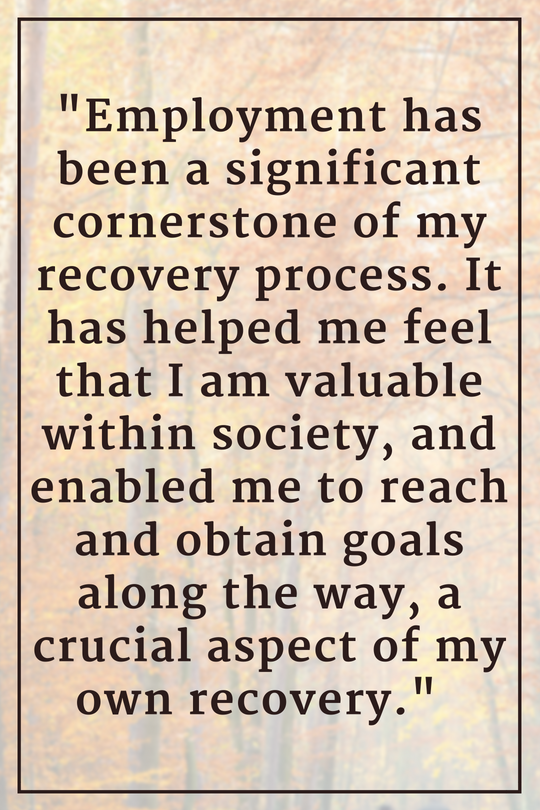
Ryan, what led you to pursue a career as a Certified Peer Support Specialist?
Several aspects of my life led me to the decision to become a Peer Support Specialist. Over the course of individual therapy work, my therapist suggested it could be a career path I might enjoy and be fulfilled in.
After looking into it, I decided that becoming a Peer Support Specialist would be a good recovery goal for myself, and further help me maintain my own recovery.
I also believed that I was capable of helping others with my own lived experiences of trauma, addiction, homelessness, and extreme poverty. Becoming a Peer Support Specialist provided an avenue for me to do that, and be a living message of hope for others.
How has employment played a role in your recovery process? Have there been things that are difficult about going back to work?
Employment has been a significant cornerstone of my recovery process. It has helped me feel that I am valuable within society, and enabled me to reach and obtain goals along the way, a crucial aspect of my own recovery. Initially in recovery, I worked on a clean and sober construction crew, in restaurants, and finally began my career as a Peer Support Specialist.
Through working my way up from part time work at a Warmline speaking to people living with mental illness over the phone, to working at a Community Support Program, I began to work my way up and reach significant goals along the way. Currently, I have full-time employment working with the homeless population. Each goal I have achieved on my journey through the employment process has strengthened my recovery and enabled me to become more engrained in the recovery process of the clients I work with. It has been incredibly rewarding to me to be able to be a positive influence on the communities I serve.
Although gratifying, the process of finding and maintaining employment has not been without obstacles for me. It has been hard to find a balance between building a career while also working to rebuild my personal life in recovery. Work can also be stressful, and can sometimes be a place where potential triggers exist. Maintaining a job with severe and persistent mental illness can be challenging, yet the rewards far outweigh the challenges I have encountered.
Do you have any advice for someone who is in recovery and considering going back to work?
Based on my own experience, people in recovery who are considering returning to work should be aware of the challenges or barriers that may exist, make a plan involving realistic goals related to employment, and seek support in whatever aspects they may struggle with during that process.
Support may include others in their life or even third-party organizations that help people get back into the workforce. If possible, I believe that people should wait until they are truly ready and have a strong foundation in their recovery.
What advice do you have for someone considering a career as a Certified Peer Support Specialist?
Being a Peer Support Specialist is a very fulfilling career path. If someone is considering pursuing this path, they should first research the process involved in becoming a Certified Peer Specialist, and have a strong desire to be willing to utilize their own lived experiences to help others.
Individuals interested in this career should ask themselves, “Do I want to get into a career that is primarily based around helping others with similar issues I have experienced?” If so, this may be a very positive, life-changing career for that person.